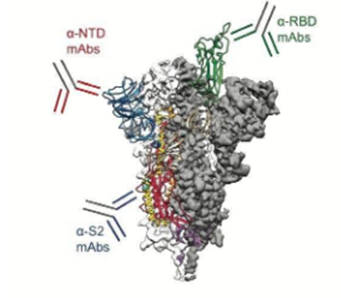Immune system and Corona virus
Scientists have come up with the most complete picture yet is coming into focus of how the antibodies work to neutralize the part of the virus which is responsible for causing infection.
Context
Scientists have come up with the most complete picture yet is coming into focus of how the antibodies work to neutralize the part of the virus which is responsible for causing infection.
About the key findings
- The research was conducted at the University of Texas at Austin (UTexas) and published in the journal Science.
- Previous research: It focused on one group of antibodies that targeted the most obvious part of the coronavirus’s spike protein, which is called the receptor-binding domain (RBD).
- The RBD is the part of the spike that attaches directly to human cells and enables the virus to infect them.
|
Receptor-binding domain (RBD)
|
-
- It was assumed to be a primary target of the immune system.
- New finding: The researchers found that most of the antibodies circulating in the blood — on average, about 84% — target areas of the viral spike protein outside the RBD.
- These antibodies are painting the entire spike, both the arc and the stalk of the spike protein, which looks a bit like an umbrella.
- The immune system sees the entire spike and tries to neutralise it.
- Many of these non-RBD-directed antibodies act as a potent weapon against the virus by targeting a region in a part of the spike protein located in what would be the umbrella’s canopy called the N-terminal domain (NTD).
- The NTD is also a part of the viral spike protein that mutates frequently, especially in several variants of concern.
- The N-terminus is the start of a protein or polypeptide referring to the free amine group (-NH2) located at the end of a polypeptide.
- This suggests that one reason these variants are so effective at evading our immune systems is that they can mutate around one of the most common and potent types of antibody in our arsenals.


